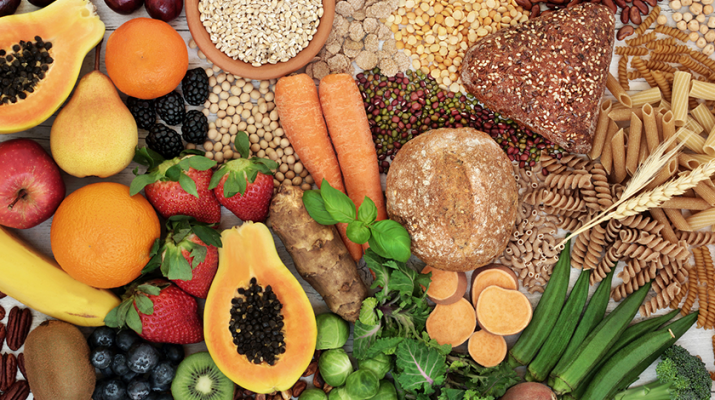By Deborah Jeanne Sergeant
Need another reason to eat a fiber-rich diet?
It may be associated with delaying onset of dementia.
A study recently published in the journal Frontiers in Immunology states that fiber may set off the production of a short-chain fatty acid rich in anti-inflammatory properties that could defer cognitive decline.
Reducing inflammation in the brain by eating a high fiber diet made the old mice in the study identical to young mice in regard to their inflammation markers.
Rodney Johnson and Stephanie M. Matter with University of Illinois at Urbana-Champaign wrote the study.
“Fiber can influence inflammation in the entire body,” said Mary Jo Parker, registered dietitian at Nutrition & Counseling Services in Williamsville.
She added that fermentable fiber ramps up production of short chain fatty acids. These appear to help the digestive system generate anti-inflammatory and anti-cancer effects throughout the body.
“It looks promising for brain health and diminishing the effects of aging, but we must be cautious when reading conclusions based upon animal studies,” Parker said. “We can’t automatically assume it can be extrapolated to humans. More research needs to be done but that’s how we start inquiries and further our hypotheses. It’s a good beginning.”
Of course, further study will help researchers better understand the correlation and learn if the same holds true for humans. But in the meantime, eating more fiber can benefit health in many ways.
“We have known for a long time that fiber produces a healthy digestive tract,” Parker said. “It adds bulk to the diet to help reduce constipation and support regularity. It increases water content of stool making it easier to pass and decreases transit time of waste in the colon.”
Among a high fiber diet’s benefits, Parker also listed decreased levels of serum lipids, lowered blood glucose, a healthy immune system and promotion of healthy weight.
Getting more fiber
So how can you get more fiber in your diet? Parker has a few suggestions:
• “Fruits, vegetables, legumes, nuts, seeds and whole grains are the sources, along with soluble fiber supplements like psyllium (Metamucil) and Citrucel, and others.
• “It’s best to consume it throughout the day to get sufficient fiber in. Adding nuts and seeds can help a lot: For example, flaxseed and flaxseed meal can be added to hot and cold cereals, yogurt, baked goods.
• “Chia sees are a good thickening agent and can be used in smoothies, puddings, and baked goods. Of course, you can add these to smoothies and shakes, along with fruits and veggies.
• “Adding nuts and seeds to any meal or snack adds fiber without adding more volume, which can help to get more in.
• “You can get lots of veggies in when they are cooked down or pureed and added to soups, stews, and casseroles, or sauces. You can use oatmeal or oat bran in meat loaf and meatballs instead or bread crumbs, or use whole wheat crumbs.
• “High fiber cereals with fruit and nuts/seeds can be a good way to start the day. Of course salads and whole grain bowls can incorporate all of the above.
• “Fibers that confer all of these health benefits are naturally-occurring: found in whole foods. The fiber added to foods, although they could be from natural sources [such as inulin or chicory root, polydextrose] have been shown to have laxation effects, but haven’t been shown to offer the additional health benefits of the fiber naturally found in the foods mentioned fruits, vegetables (including legumes an especially great source of fiber), whole grains, and nuts/seeds.”
Physician Joanne Wu, an experienced yoga teacher, medical doctor, health coach and wellness expert who sees clients in Buffalo, said “Excellent sources include berries, nuts, beans, whole grains, oats, and leafy greens.”

